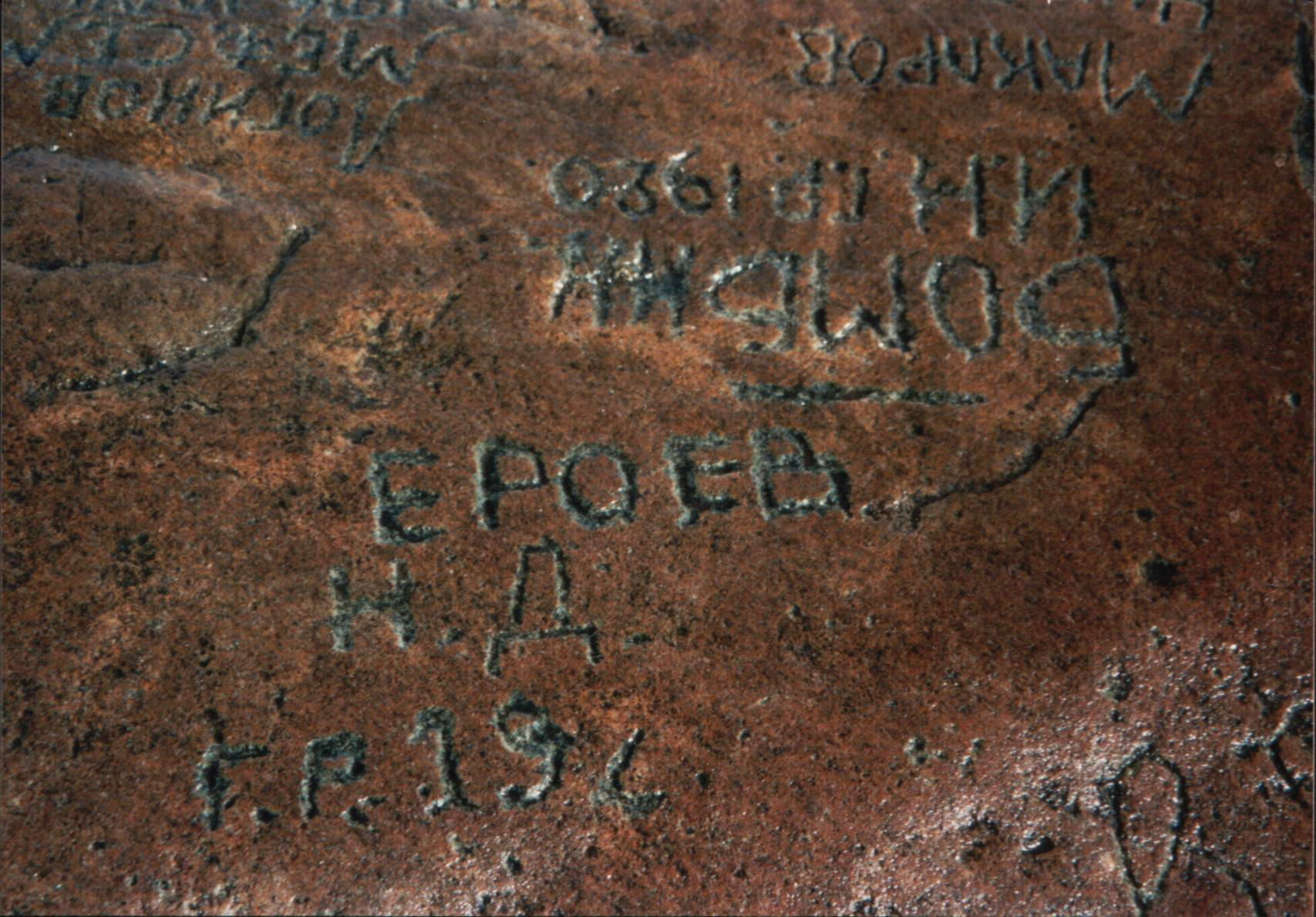Yuri Kalendarev
Project Column of Light for Saint Petersburg. Island Golez, Onega Lake. Names of prisoners 2.1993
1993, Russia
The last catalogue of the works of Yuri Kalendarev was headed by one word: stones. He is a sculptor, quarry man, stonemason”. With these words Alexander Borovsky began his prefacing text on Kalendarev’s St. Petersburg exhibition “Column of Light”, in which a project was introduced that draws a connecting line between the “Bastille of the Tsars” (Zayatchiy Island and the Peter and Paul Fortress) and the Stalinistic concentration camp on Goltzy island, 500 kilometers north of it in Lake Onega.
Yuri Kalendarev has come a long way since his early stone sculptures with his current conceptual projects which can be designated more as Land Art. Stones are, of course, still of consequence - only the way that the artist deals with them has changed fundamentally – though successively, continually and consistently.
At the beginning was the physical, handworked, sweaty labor with this material – petrified, layered and crystallized over millions of years, preserving time and change in its very substance – with time this material constitution, its age, its non-man-made beauty gained in meaning and power of expression for the artist. Kalendarev started reducing his intervention in the material, more and more frequently he left the stones – almost – as they were, but found new creative possibilities in relocating and rearranging them by inventing apparently natural landscapes out of them and with their aid he drew attention to places of specific significance, produced lines of reference between nature and the work of man, between past and present – for instance in Tefen/Galilee (1986-1990) and in Louisville /Kentucky (1989) – in the tradition of ancient stone settings.
Hans Gercke, Heidelberger Kunstverein
1990
